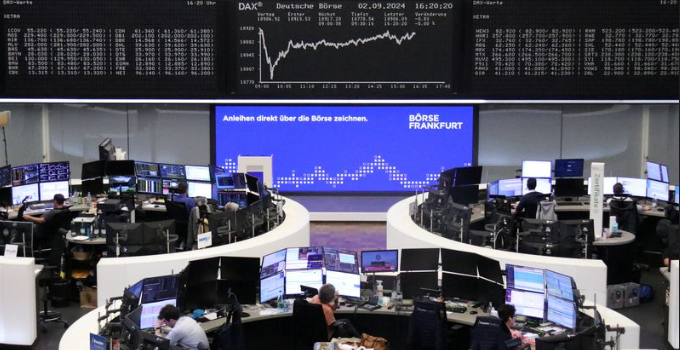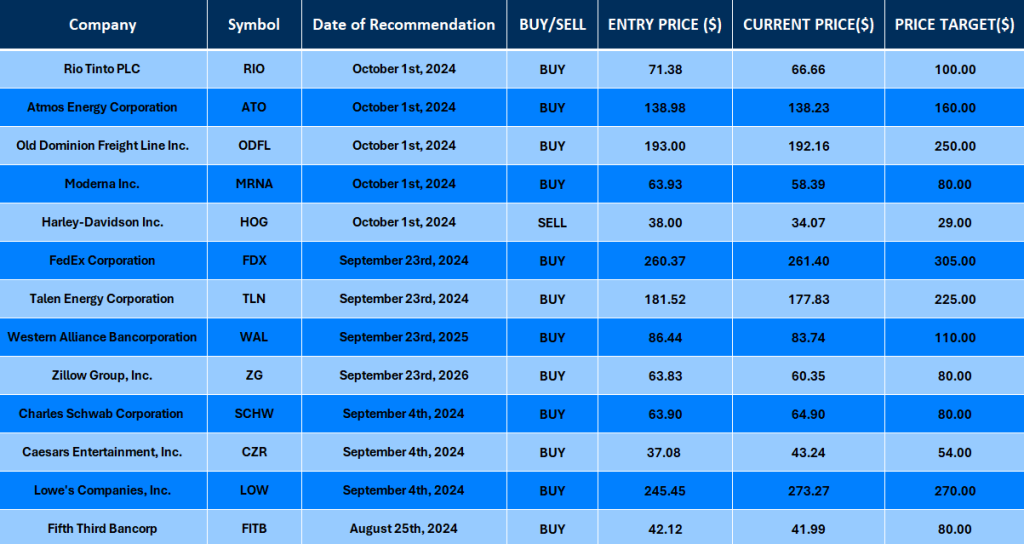
Date Issued – 4th December 2024
Preview
France faces deepening political and economic challenges as Prime Minister Michel Barnier’s government nears collapse over austerity disputes, denting business confidence and raising concerns about economic fragility, though fears of a sovereign debt crisis remain muted. In South Korea, markets were rattled by President Yoon Suk Yeol’s brief martial law declaration amid impeachment efforts, with the Kospi down 2.3% and political instability exacerbating the “Korea Discount.” Meanwhile, China plans to quadruple its nuclear capacity by 2035, surpassing global leaders, though safety and regulatory risks could temper growth as private capital reforms take shape. Salesforce shares surged 10% after beating revenue forecasts, driven by AI-driven products that signal future growth despite challenges in acquired units. Lastly, Lynas Rare Earths rallied on China’s mineral export ban, underscoring opportunities for non-Chinese suppliers as geopolitical tensions drive demand for critical minerals.
France’s Political Crisis Rattles Markets, But No Sovereign Debt Meltdown Yet
France faces mounting economic and political challenges as Prime Minister Michel Barnier’s government appears poised to collapse following a dispute over austerity measures. Bond markets, while showing signs of strain, have not reached crisis levels. France’s risk premium recently spiked to its highest since 2012, signaling investor unease, but analysts suggest the situation lacks the ingredients for a full-blown sovereign debt crisis. However, political uncertainty is already weighing on businesses, consumer confidence, and future fiscal policies, amplifying concerns about France’s economic fragility amidst broader European challenges.
Investment Insight: While French bonds remain under pressure, many investors see the turmoil as a slow-burning crisis rather than an immediate collapse. Elevated political risks may widen spreads further, but falling ECB rate expectations could offset near-term borrowing costs, presenting selective opportunities for risk-tolerant investors.
Korean Markets Shaken by Yoon’s Martial Law Decree Amid Political Uncertainty
South Korea’s financial markets faced turbulence after President Yoon Suk Yeol briefly declared martial law, sparking political chaos. The won recovered 1.6% after overnight losses, but the Kospi fell by 2.3%, with volatility hitting a three-month high. Credit default swaps widened, signaling increased risk perception. The political turmoil, driven by opposition efforts to impeach Yoon, undermines South Korea’s drive for developed market status and erodes investor confidence in the government’s economic reforms. Banks and Yoon-linked stocks saw sharp declines, while retail investors shifted toward opposition-related meme stocks.
Investment Insight: Political instability adds to South Korea’s “Korea Discount,” keeping valuations low despite global ambitions. While short-term rebounds may emerge with swift resolution, long-term structural and governance concerns will likely persist, limiting upside potential for investors.
Market price: KOSPI: KRW 2464.00
China Accelerates Nuclear Expansion, Eyes Global Leadership
China is set to approve up to 100 new nuclear reactors over the next decade, aiming to quadruple its atomic power capacity to 200 gigawatts by 2035, according to the Chinese Nuclear Society. This rapid growth would make China the world’s largest nuclear power generator by the end of the decade, surpassing the US and France. Despite safety and infrastructure challenges, Beijing’s push aligns with its decarbonization goals and positions it as a major exporter of nuclear technology, particularly the Hualong One reactor. Private capital will likely play a larger role as the capital-intensive sector seeks to maintain momentum.
Investment Insight: China’s nuclear expansion offers opportunities in state-backed firms and emerging private investments. However, safety risks, regulatory hurdles, and inland development challenges may temper long-term growth. Investors should monitor reforms enabling private capital’s larger role in this capital-heavy sector.

Salesforce Surpasses Revenue Estimates, Betting Big on AI
Salesforce posted an 8.3% revenue jump to $9.44 billion in the latest quarter, topping analysts’ expectations and sending shares up 10% in extended trading. The company’s adjusted operating margin hit 33.1%, beating forecasts, as its AI-driven “Agentforce” product begins to reshape its growth narrative. While AI deals are still in early stages, CEO Marc Benioff expressed confidence, announcing plans to hire 1,000 more employees for AI sales. Despite headwinds in acquired units like Slack and Mulesoft, Salesforce maintains strong momentum, projecting revenue of up to $10.1 billion in the current quarter.
Investment Insight: Salesforce’s pivot to AI signals long-term growth potential despite near-term challenges. Strong profitability metrics and optimism around Agentforce could sustain investor interest, though slowing growth in acquired units warrants cautious monitoring.
Lynas Shares Surge as China’s Mineral Export Ban Escalates Trade Tensions
Shares of Lynas Rare Earths jumped 5% to a near three-week high after China banned exports of key minerals—gallium, germanium, and antimony—to the U.S., intensifying trade tensions. The move has sparked fears of broader restrictions on critical minerals like rare earths, nickel, and cobalt. As the largest rare earth producer outside China, Lynas is well-positioned to benefit from growing demand amid geopolitical uncertainty. Analysts suggest Australia could capitalize on its critical mineral exports as global supply chains seek diversification.
Investment Insight: China’s export ban underscores the strategic importance of critical minerals, boosting non-Chinese suppliers like Lynas. Rising trade tensions could drive long-term demand for Australian rare earths, presenting growth opportunities for investors in the sector.
Market price: Lynas Rare Earth Ltd. (LYC.AX): AUD 7.32
Conclusion
France’s political turmoil, South Korea’s instability, and China’s nuclear ambitions highlight the growing interplay between politics and markets, as investors navigate a landscape shaped by uncertainty and opportunity. France’s bond market strains, South Korea’s “Korea Discount,” and China’s push for nuclear dominance all underscore the importance of strategic positioning amid shifting risks. Meanwhile, Salesforce’s AI-driven momentum and Lynas Rare Earths’ gains from escalating trade tensions demonstrate how innovation and geopolitics are reshaping investment narratives. As global markets respond to evolving challenges, selective opportunities emerge for investors willing to balance short-term volatility with long-term growth potential.
Upcoming Dates to Watch
- December 6, 2024: US Consumer Sentiment
- December 11, 2024: US CPI
Find below some of our Buy/Sell Recommendations. Balfour Capital Group is a distinguished global boutique investment management firm with $400 million AUM and over 1000 Clients.

Disclaimer: This post provides financial insights for informational purposes only. It does not constitute financial advice or recommendations for investment decisions.

